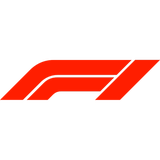
Column: Friction in Formula 1 can help lift the sport

LONDON -- Friction in Formula One and ongoing negativity has created instability that affects companies pumping money into the sport, according to a director of the motorsport series.
But Martin Sorrell, who is also chief executive of advertising giant WPP, told The Associated Press that public disputes over the state of F1 could in fact help to make the sport more commercially attractive.
Although Sunday's British Grand Prix was seen as a thrilling antidote to some of the processions in the first eight races of the season, Mercedes still secured a ninth consecutive double podium.
Mercedes duo Lewis Hamilton and Nico Rosberg have won eight of the nine races and teams have held talks about how to make the sport more exciting and competitive across the grid. Even F1 boss Bernie Ecclestone has questioned the quality of this year's spectacle.
"Obviously there will be changes that will help the sport," Sorrell, a non-executive member of the F1 board, told the AP. "But I am looking at it from a marketing point of view. And just talking (at Silverstone) to one or two of our (WPP) clients, they are very interested in the sport, but obviously disturbed by some of the things that they read and hear.
"That creates a feeling of instability or uncertainty which is not good, but I think out of that comes big opportunities."
Despite the gloomy prognosis for the future of F1 by some teams, with Sauber's leadership concerned the connection with fans is being lost, Sorrell pointed to ongoing interest from broadcasters and the 140,000-crowd at Silverstone as evidence of the vitality of the sport.
"What's interesting is when sports are under pressure, it's a reverse psychology, people start to get more interested," Sorrell said.
"The more friction there is in the sport I think it actually in a perverse way becomes more interesting, rather than less interesting."
F1 is currently a takeover target of French soccer team Paris Saint-Germain's Qatari investors, who have linked up with the NFL's Miami Dolphins ownership to consider a bid.
"F1 offers massive potential," Sorrell said. "Sport is becoming more and more important and with live events, the rights prices are actually increasing. So if you think about F1 in that context there should be more opportunity not less opportunity (for growth)."
F1's largest and controlling shareholder is CVC Capital Partners, the investment fund which owns a 35.5 percent stake after initially gaining control of the sport in 2006 for around $2 billion.
"When you are a private equity investor you have difficulties because your funds have finite terms," Sorrell said. "Private equity investors tend to be five, six, seven years max, which limits what you can do.
"At WPP we have very much more long-term investors but private equity by their nature places restrictions on what they can do."
Sorrell declined to talk about the possibility of F1 being sold but he would want an owner with a big vision for the glamorous series.
"The critical issue is not who it is, it's what their objectives are," Sorrell said. "If their objectives are long-term development of the sport, it works. One of the big issues facing business generally is short term versus long term."
